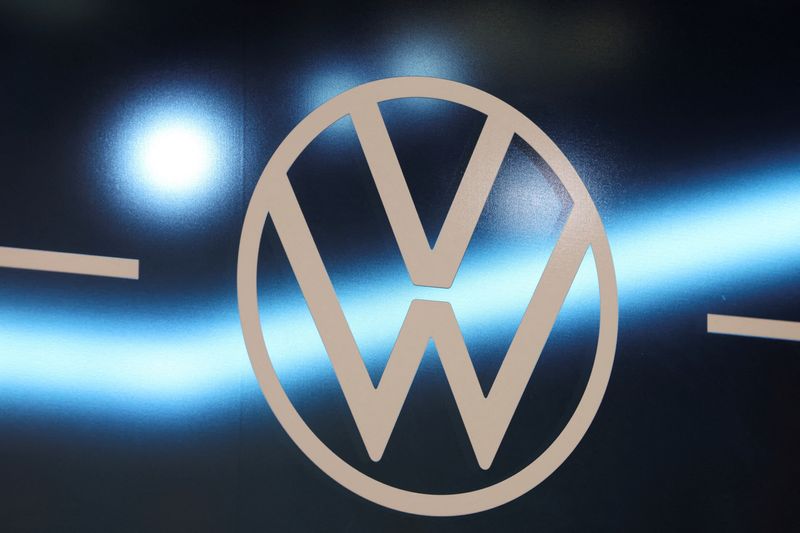By Victoria Waldersee
BERLIN (Reuters) - A Volkswagen-commissioned audit of its jointly owned site in Xinjiang, China, had found no signs of forced labour, the automaker said on Tuesday, although the auditor added that the challenges of data collection in China were widely known.
The audit, which was carried out by German human rights due diligence firm Loening Human Rights & Responsible Business GmbH, included on-site interviews and inspection of employee contracts and salary payments for the site's 197 employees.
"The situation in China and Xinjiang and the challenges in collecting data for audits are well known," Loening's managing director Markus Loening said in a statement, adding the mandate was limited to the employees of the Urumqi plant, which is a joint venture with SAIC Motors.
Earlier this year, Volkswagen (ETR:VOWG_p) investors demanded that the carmaker request cooperation from SAIC to conduct an independent audit of labour conditions at the site in Xinjiang, a region where rights groups have documented abuses including mass forced labour in detention camps.
Beijing denies any such abuses.
Global index provider MSC marked Volkswagen with a 'red flag' in its social issue category in November 2022 due to allegations of forced labour in Xinjiang, prompting some investors to drop the stock from their portfolios.
Analysts at Citi said that VW's findings could potentially reverse a significant part of its stock's underperformance in the wake of the rebuke.
"If this audit conclusion satisfies MSCI, and the 'red flag' is removed, many EU investors currently not allowed to own any VW shares given ESG metrics, may now buy back at least some exposure," Citi said in a note. 'LITTLE TO DO'
Loening carried out the audit with two Chinese lawyers from a firm in Shenzhen, Volkswagen said, without naming them.
Beijing has on numerous occasions sought to curb the influence of Western auditors across China.
A U.S. auditor's office was raided in Beijing earlier this year and reports emerged that China instructed state-owned enterprises to stop using the 'Big Four' auditing firms PwC, EY, KPMG and Deloitte.
Volkswagen said the audit was conducted in line with the SA8000 standard, a management systems standard based on international human rights principles which assesses eight areas including child labour, forced labour and health and safety.
Still, the site had not received an official SA8000 certification, Volkswagen added. Loening is not listed on the website of SAI, which crafted the standard, as an accredited body to provide such certifications.
Volkswagen wound down the site's operations after the pandemic, reducing the number of staff from a peak of 650 to 197, of which just under a quarter are Uyghur. It has denied reports that it has kept the plant open as a condition from Beijing to keep producing across China.
"The employees are paid above average and have little to do," Loening said, highlighting that the plant, which previously assembled the Santana model, now only handled "technical commissioning and deliveries to the region".

Volkswagen's China chief Ralf Brandstaetter said he saw no signs of forced labour when he toured the site in February.
However, his comments drew criticism from some campaigners and a major Volkswagen investor who said ascertaining labour standards in the region was impossible.